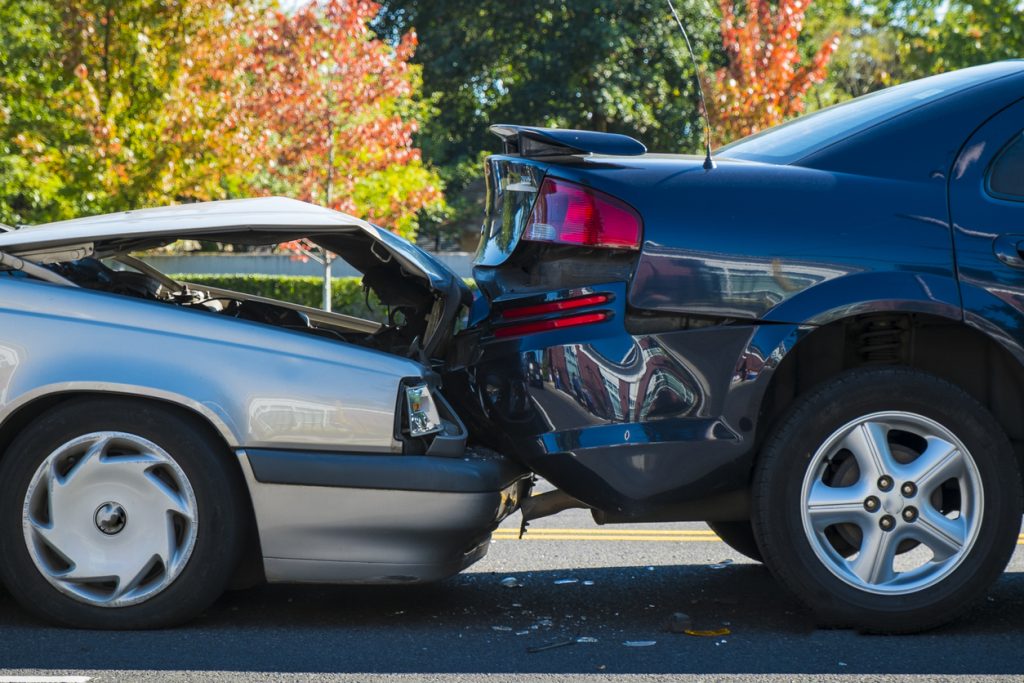Limited Tort and What It Means for You
April 22, 2020
Publications
A “tort option” applies to you when you are injured by a vehicle in Pennsylvania. The tort option could be one of two choices: Limited or Full.[1] When you are dealing with injuries from a car accident, the decision of Limited versus Full Tort was made long ago and perhaps by someone other than the injured person.
If, by some chance, you are reading this article and are researching what it means to have Limited or Full Tort in the context of deciding what to buy on your insurance policy; please choose Full Tort. Your future-self will thank you for keeping your options open for a small sum of additional premium. An insurance agent or broker can tell you how much more it will cost to get the right (Full Tort) option. Choosing Full Tort now, is not a decision to sue someone later, it is the decision to have leverage over someone who later hurts you.
For this short article, let’s stick with what it means to you to have Limited Tort rather than Full Tort, after a car accident someone else caused.
Generally, Full Tort is better and Limited Tort is worse when you are considering what to do after being hurt in a car accident. Full Tort means you have the complete discretion, at the time of the crash and in the months after, to decide whether you are going to make a claim [2] for pain and suffering resulting from another person hurting you in a car accident.
The tort option selection has nothing to do with how you are protected if you cause an accident and someone else is hurt.
Limited tort means you may only bring a claim for pain and suffering if an exception applies to your situation.
Let’s step back for a minute and allow me to talk with you about what the tort option does not apply to, because I’m being very specific about the words “pain and suffering.” Limited or Full tort does not affect whether you can bring a claim for any medical expenses for which you are responsible, nor does it change your ability to make a claim for lost wages. So, if you have $1,000 in out of pocket medical expenses, and you missed work and lost $1,000 in pay, you can recover those losses from the person who hit and hurt you even when you have limited tort. You just can’t also bring a claim to get another $1,000 for the pain you had in your neck for six months, probably. There are exceptions.
Before we talk about the exceptions, I want you to know why the tort option matters. Initially, it is all about leverage with an insurance adjuster. If the Limited Tort selection applies to you in a car accident case, the adjuster knows you likely are not going to be able to sue the driver in Court for pain and suffering unless one of the exceptions apply to you. The adjuster will then probably not pay you anything for pain and suffering in a settlement. You have lost the leverage to make the insurance company pay. The corollary is if the Full Tort selection applies to you, then you have all the leverage. The insurance adjuster knows you can bring a claim for pain and suffering, regardless of how minimal that may be. This probably doesn’t matter if you have bumps and bruises and go to the doctor one time and you are fine…that claim is hardly worth pursuing. It will matter a great deal if you banged your head on the i-pillar of the car as a passenger, had a big lump on your forehead for eight weeks, had headaches for six months, and saw an eye doctor a number of times to get your vision straightened out. Limited tort makes that a very difficult claim, while if you selected Full Tort, that claim has real value.
Further down the road, Limited Tort is a legal bar to a successful claim for pain and suffering in Court. It may be a question for a jury to answer, but you could spend a year and a half of your life prosecuting a claim in Court for a jury to say, yes it was the person’s fault, and yes you were hurt, but your injuries were not serious and so Limited Tort says you cannot recover. You lose.
If you have had a car accident, and Full Tort applies, a McNees injury attorney can help you choose a plan of action after discussing your options. If Limited Tort applies to your claim, then keep reading because there may be hope.
There are basically four exceptions to consider when Limited Tort applies to you when you were in a car accident. We’ll do the easy ones first.
You are automatically legally converted to Full Tort if:
- You are hit by a driver, who is convicted of driving while intoxicated. So, if a drunk driver hits you and hurts you, you are full tort if the driver either takes ARD or is convicted of drunk driving.
- You are hit by a vehicle registered in some state other than Pennsylvania. Get the yellow sheet out the police gave you and look at the address listed for the vehicle. This often happens if you are hit by a rental car, tractor-trailer, or near the border with another state.[3]
- You are riding in a vehicle other than a “private passenger” motor vehicle. This could be a bus, commercial vehicle like a tractor-trailer or delivery vehicle, or a motorcycle. So, if you are driving a tractor-trailer and you are hit by another commercial truck registered in Pennsylvania, the Limited Tort selection you made on your personal auto insurance policy does not apply. You are Full Tort.
The last, and catch-all provision of the Pa. Financial Responsibility Law, which allows you to cross over the Limited Tort threshold and convert to Full Tort, despite having selected Limited Tort is, if you are seriously injured. It is better for you if you never use this exception, because it means you have probably lost the function of a body part for a period of greater than 6-9 months, and/or you had surgery and have a permanent disfigurement such as a surgical scar. To read the statute I’m using above, see 75 Pa. C.S.A. Section 1705.
For an assessment of whether you can bring a claim because of a serious injury, we would need to speak with you and assess all the facts in light of the common law developed in Pennsylvania’s Courts. It does happen, that someone can get past Limited Tort because of a serious injury, but it is a much more difficult road to pursue a claim—which comes with longer time horizon of litigation.
If you still have questions or wish to discuss your car accident, please call. We, in the McNees Personal Injury Practice Group, are here to help you understand your options, and work at the best solution. You do not need to carry these burdens alone. Let us help.
We have offices in Harrisburg, Lancaster, State College, Scranton, and York, Pennsylvania to serve you.
[1] This can be confusing, because many people talk about full coverage-which is completely different. Full coverage, in insurance parlance, means the purchase of comprehensive and collision coverage for your vehicle. Without full coverage, a person is insured for “liability only” and there is no coverage for damage to the vehicle itself.
[2] I’m using “claim” to include both a claim to an insurance company, and a legal claim you would bring to a court.
[3] There is a whole different set of rules which apply when you are hit in a different state, so for this article, I am assuming the accident happened in Pennsylvania.



